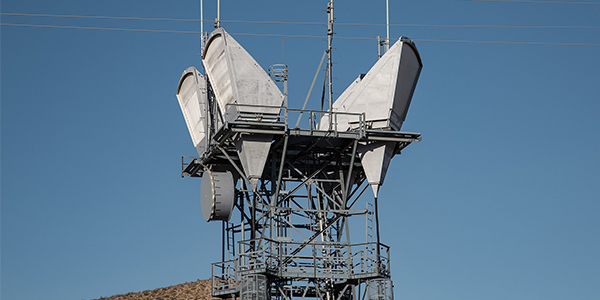The Utilities Technology Council (UTC), National Rural Electric Cooperative Association (NRECA) and American Public Power Association (APPA) asked the D.C. Circuit Court of Appeals on Monday to overturn the Federal Communications Commission’s ruling opening a portion of the 6-GHz band for unlicensed use.
The FCC’s April 24 ruling came over the objections of utilities, which say their communications in the spectrum could be disrupted by unlicensed use. (See Utilities Alarmed as FCC Opens 6 GHz Band to Wi-Fi.)
The commission said its ruling will allow the next generation of Wi-Fi — more than two-and-a-half times faster than the current standard — and an explosion of new uses in the “Internet of Things.” It said its ruling will nearly quintuple the amount of spectrum available for Wi-Fi, improving rural connectivity (Docket 18-295).
Utilities contend that the commission failed to balance protection of critical communications in its desire to be innovative. They use the 6-GHz band for point-to-point microwave links providing communications with substations, fault sensors, two-way meters and service crews. It is also used to provide situational awareness in rural areas where wired networks are not available. Other critical infrastructure — such as police and fire dispatch, railroads and natural gas and oil pipelines — also use the spectrum.
The FCC insists that it will protect utilities by using automated frequency coordination systems (AFC) to prevent standard power access points from operating where they could cause interference to existing services. But utilities say AFC — which uses a “database lookup scheme” to ensure that unlicensed users are not encroaching on an existing user’s priority access to the frequency in a specific area — should be required for low-power devices also.
The petition by UTC, NRECA and APPA asks the court to find that the FCC acted unlawfully by permitting new devices into the band without sufficient safeguards and without considering numerous studies demonstrating the risk of interference.
“From the beginning of this proceeding, we urged the commission to fully vet and test its theories and assumptions that it could safely permit unlicensed users into a band already heavily used for public safety and essential electricity, water and natural gas services,” UTC CEO Sheryl Riggs said in a statement. “Existing users of the 6-GHz spectrum band offered study after study demonstrating that the FCC’s plan was flawed and needed to be revised so as to allow a thorough analysis to prove these new devices could operate without causing interference. We do not take this step lightly but feel that taking this matter to court is in the best interest of our members, our industry and the public.”





